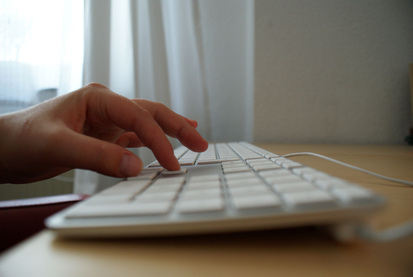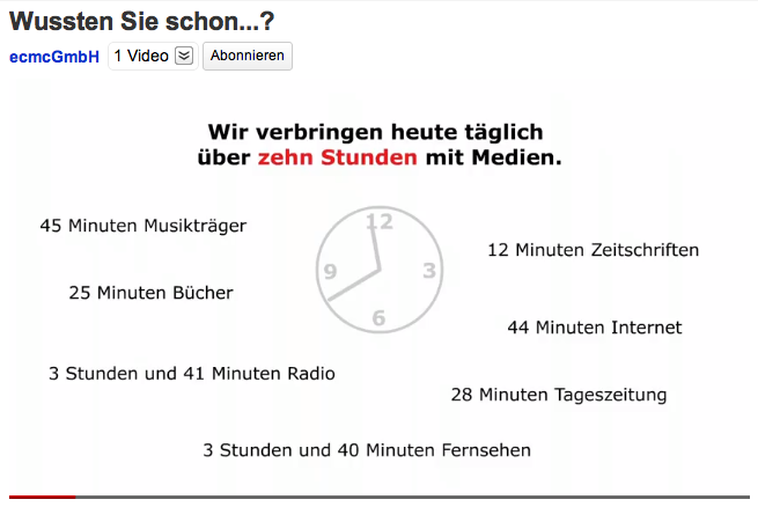Standards in Media Competence and Computer Literacy in School

It is almost unimaginable to do without a computer nowadays. New media is present in nearly every household and in addition, you can observe their in other areas, too. But is has definitely arrived in schools.
This is why we asked ourselves in the "New Media" class what skills and knowledge pupils of different age groups should have considering the use of a computer. But the pupils should not only learn how to handle a computer but other new media tools, plus the world wide web. New media is omnipresent and not only the new possibilities but also dangers in the internet require a more precise dedication than ever.
Especially as we are going to be teachers we have to be aware of the media competences our prospective pupils need to accomplish during their schooldays. Furthermore, they have to be educated in computer literacy which stands for the ability to use computers and work with them efficiently. This requires certain knowledge as well as basic and advanced skills. Below you can see the results of the most important skills pupils after year 5 should have gained.
What pupils should be able to do and know after year 5:
1. How to turn on and off the computer
2. How to work with text processing
3. Software (Microsoft Word or Open Office)
4. How to start the browser
5. Favorite home pages
6. How to use input devices (basic: Headphones, mouse, keyboard, camera, USB stick)
7. Copy and paste
8. Work with Google and YouTube (or other age appropriate search machines such as "Blinde
Kuh")
9. Special kids programs (computer games)
10. How to use the DVD- CD player
11. How to use social networks (Icq, Messenger - If they have a computer class at school, they
should already heard about privacy, virus protection and cyber bullying.)
After acquiring these basic skill the pupils should be able to extent those and get an even more advanced knowledge of how to use a computer. The next steps up to year 12 and beyond are listed here:
What pupils should be able to do and know after year 9:
1. Knowledge about legal / copyright issues on the web
2. Knowledge about privacy issues: no publishing of private data etc. (e.g. on social networks)
3. Basic research skills (e.g. google research on a simple topic without specific given websites)
4. Knowledge about criteria for reliable sources
5. Ability to find photos / pictures which are not copyright protected
6. Ability to use Word / text processing programs
7. Knowledge about conventions concerning sending emails (style, attachments, …)
8. Enough experience to handle digital camera, audio recorder and similar devices autonomously
What pupils should be able to do and know after year 12:
1. Use Powerpoint properly
2. Know about copy right issues on the internet
3. Know where to find reusable pictures
4. Being able to create websites with a website editor
5. Know reliable and specific resources
6. Basic office skills
7. Extensive text processing skills
8. Being able to decide whether information/ websites are reliable
9. Careful handling of private information
Concluding, I want to show you a really informative video I found on the "Europäisches Zentrum für Medienkompetenz", click here if you are interested!
Plus, a very interesting study is the so-called "JIM study" which has a closer look to young people and their use of media. You can also download the results as PDFs.
This is why we asked ourselves in the "New Media" class what skills and knowledge pupils of different age groups should have considering the use of a computer. But the pupils should not only learn how to handle a computer but other new media tools, plus the world wide web. New media is omnipresent and not only the new possibilities but also dangers in the internet require a more precise dedication than ever.
Especially as we are going to be teachers we have to be aware of the media competences our prospective pupils need to accomplish during their schooldays. Furthermore, they have to be educated in computer literacy which stands for the ability to use computers and work with them efficiently. This requires certain knowledge as well as basic and advanced skills. Below you can see the results of the most important skills pupils after year 5 should have gained.
What pupils should be able to do and know after year 5:
1. How to turn on and off the computer
2. How to work with text processing
3. Software (Microsoft Word or Open Office)
4. How to start the browser
5. Favorite home pages
6. How to use input devices (basic: Headphones, mouse, keyboard, camera, USB stick)
7. Copy and paste
8. Work with Google and YouTube (or other age appropriate search machines such as "Blinde
Kuh")
9. Special kids programs (computer games)
10. How to use the DVD- CD player
11. How to use social networks (Icq, Messenger - If they have a computer class at school, they
should already heard about privacy, virus protection and cyber bullying.)
After acquiring these basic skill the pupils should be able to extent those and get an even more advanced knowledge of how to use a computer. The next steps up to year 12 and beyond are listed here:
What pupils should be able to do and know after year 9:
1. Knowledge about legal / copyright issues on the web
2. Knowledge about privacy issues: no publishing of private data etc. (e.g. on social networks)
3. Basic research skills (e.g. google research on a simple topic without specific given websites)
4. Knowledge about criteria for reliable sources
5. Ability to find photos / pictures which are not copyright protected
6. Ability to use Word / text processing programs
7. Knowledge about conventions concerning sending emails (style, attachments, …)
8. Enough experience to handle digital camera, audio recorder and similar devices autonomously
What pupils should be able to do and know after year 12:
1. Use Powerpoint properly
2. Know about copy right issues on the internet
3. Know where to find reusable pictures
4. Being able to create websites with a website editor
5. Know reliable and specific resources
6. Basic office skills
7. Extensive text processing skills
8. Being able to decide whether information/ websites are reliable
9. Careful handling of private information
Concluding, I want to show you a really informative video I found on the "Europäisches Zentrum für Medienkompetenz", click here if you are interested!
Plus, a very interesting study is the so-called "JIM study" which has a closer look to young people and their use of media. You can also download the results as PDFs.

